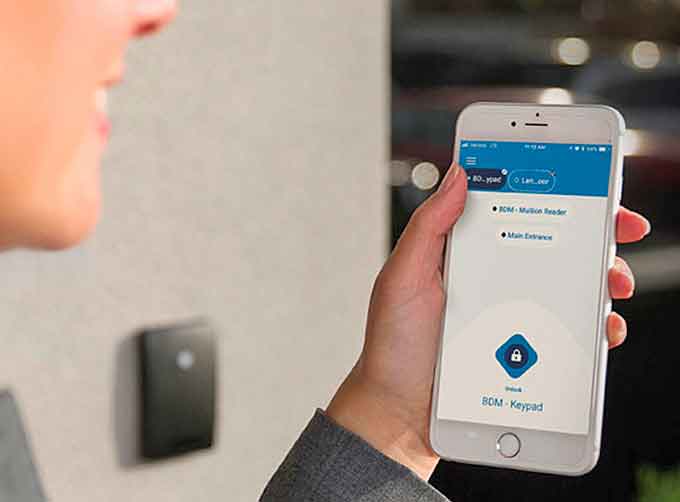
By Greg Berry, Vice President, Mobile Credentials, Lenel
Our world has become mobile.
People now expect to use smartphones to communicate and interact with their world – at the store, bank, hotel, or even at work.
Society expects convenience, but without sacrificing security.
Access control manufacturers have taken note and are now creating an entire mobile ecosystem capable of much more than just replacing plastic badges.
This ecosystem is based on mobile technology that has been proven by more than a decade of use in the hospitality, retail and real estate industries.
 Facility managers can now use mobile credentials to accommodate approved visitors without the need to register with security or be issued a temporary access badge.
Facility managers can now use mobile credentials to accommodate approved visitors without the need to register with security or be issued a temporary access badge.
Here’s how the mobile solution works:
-
A badge number is assigned and sent to a Cloud-based server and the access controller.
-
Before arriving at the building, a visitor receives an email including a badge invitation, authorization to activate the credential and a link to a mobile app.
-
The app will detect building door readers and display them on the visitor’s smartphone.
-
Tapping the desired door allows the app to authenticate the reader and access is granted or denied by the controller.
Also, the mobile credentials can’t be lost and can be reused, transferred and remotely deactivated, unlike printed plastic ID badges.
A comprehensive system for mobile credentials
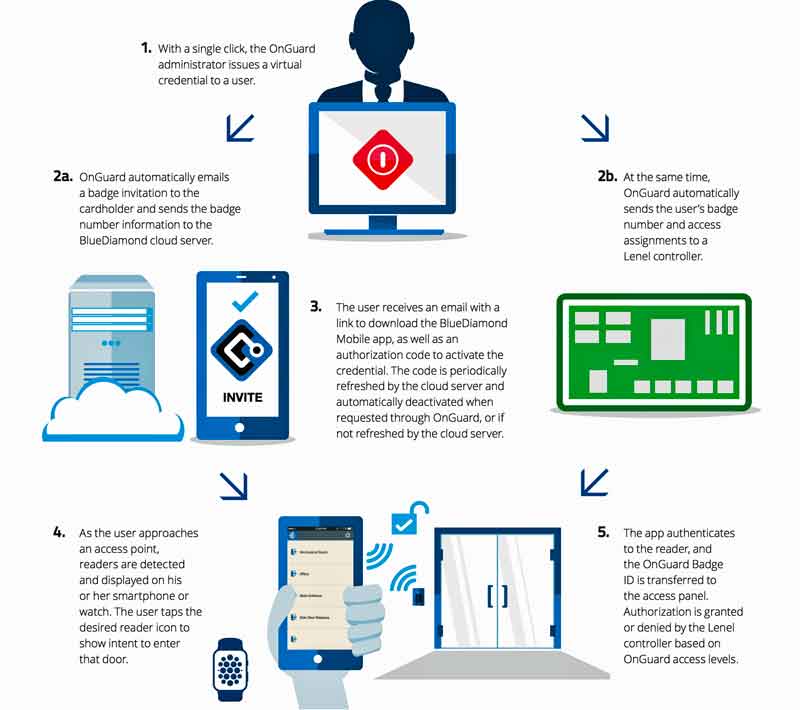
Smartphones are more secure than plastic credentials, requiring possession of the device, a security code or biometric verification, the app and downloaded credential.
Facility managers can also require additional authentication via wall-mounted biometric readers using iris scans, facial recognition or fingerprints.
Personal identification numbers (PINs) can also be entered through the phone’s keypad.
Using appropriate privacy safeguards and consent, facility managers may take advantage of smartphones’ built-in GPS technology to know where each device (and its owner) are located.
Access can be limited to only those doors required for the person to complete his or her job.
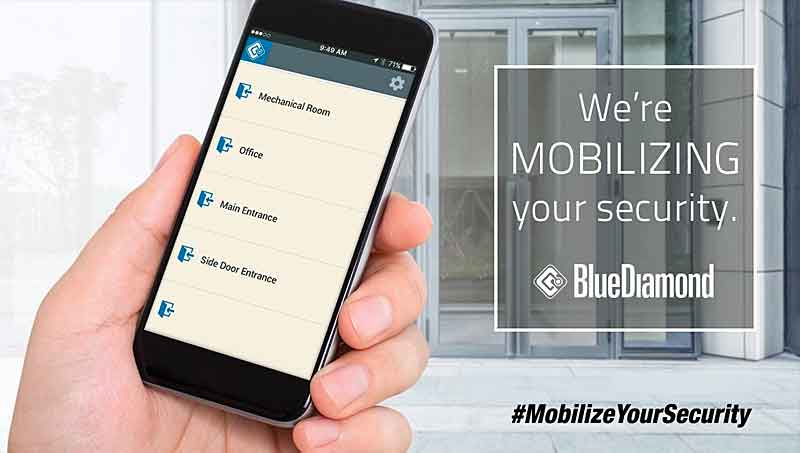 Smartphones are routinely carried by people, making the need to carry an access card in the wallet or hanging from a lanyard unnecessary.
Smartphones are routinely carried by people, making the need to carry an access card in the wallet or hanging from a lanyard unnecessary.
Additionally, the cost of smartphones, the personal data they contain and the fact that they are carefully managed, make it less likely for the phones to be loaned to another employee, lost or stolen.
Also, smartphone ownership is becoming standard.
A 2016 survey by the Pew Research Center found 77 percent of U.S. adults own a smartphone – a percentage that has increased steadily each year since the first study in 20111.
Then there are financial considerations.
By using smartphone credentials, an organization alleviates the costs associated with plastic badges such as printers, ink and consumables.
Larger organizations may issue thousands of badges each year.
Smartphone credentials seem to represent the future. Yet with all the smartphone advantages, plastic badges will still be needed in the immediate future.
There are several reasons, including:
-
Some people don’t own a smartphone.
-
Organizations may be slow to migrate away from traditional access control protocols.
-
Some employers prefer badge/access cards with a photo of the person to whom the badge was issued, as it clearly shows security and other employees that the carrier has been cleared for facility access.
-
Technology behind access cards continues to evolve in terms of security, speed and convenience.
To include all customers, a hybrid solution is a good near-term solution.
Readers capable of supporting both traditional cards and smartphone credentials exist today in order to facilitate all needs.
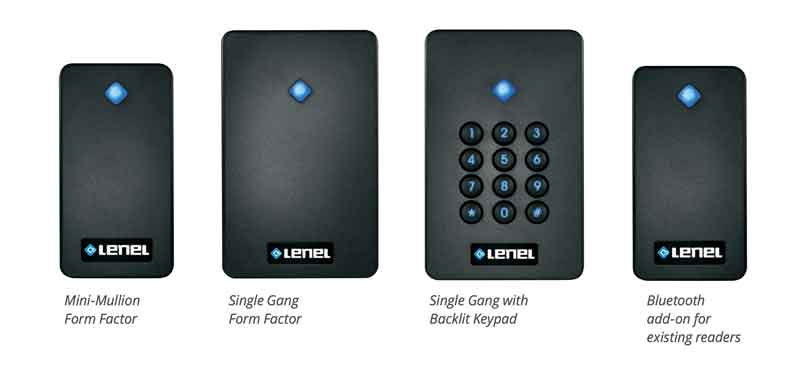
These readers allow for a phased approach to the newer technology.
Add-on readers, hidden in a wall or a ceiling, add Bluetooth capability – required for smartphone credentials – to most existing installations.
Facility executives want solutions, not potential dead ends, no matter which credential system is used.
Standards and open systems allow the development of modular security so individual components (either the credential or the operating software) can be replaced without having to replace everything else.
Forward-looking organizations don’t want proprietary, closed solutions.
(Lenel’s newest OnGuard version has been updated to have browser-based and mobile-client based capabilities, all while staying true to Lenel’s best-in-class standards. Some of the newest improvements include cardholder management and alarm monitoring – all accessed from your mobile device. Courtesy of Security Magazine and YouTube. Posted on May 16, 2018.)
For facility managers or access system administrators, smart devices simplify credential management. There is no need for procurement, storage, handling, shipping or printing of physical badges.
The proven mobile credentialing technology available in the newest readers, allows users to take advantage of mobile credentials today. Looking forward, newer downloadable apps will be developed, giving smartphone credentials even more advantages over plastic badges.
About the Author:

Greg Berry is vice president, mobile credentials for Pittsford, N.Y.-based Lenel, part of UTC Climate, Controls & Security, a unit of United Technologies.
Lenel is a global leader in advanced security systems and services developing innovative solutions to protect buildings, people and assets.
Incorporating open architecture and third-party interfacing, Lenel’s enterprise software manages multiple best-in-class systems to provide a single, seamless security solution for customers worldwide, including corporate and government segments.
Lenel Competes in 2018 ‘ASTORS’ Homeland Security Awards Program
AST focuses on Homeland Security and Public Safety Breaking News, the Newest Initiatives and Hottest Technologies in Physical & IT Security, essential to meeting today’s growing security challenges.
 The 2018 ‘ASTORS’ Homeland Security Awards Program, is organized to recognize the most distinguished vendors of Physical, IT, Port Security, Law Enforcement, Border Security, First Responders, (Fire, EMT, Military, Support Services Vets, SBA, Medical Tech) as well as the Federal, State, County and Municipal Government Agencies – to acknowledge their outstanding efforts to ‘Keep our Nation Secure, One City at a Time.
The 2018 ‘ASTORS’ Homeland Security Awards Program, is organized to recognize the most distinguished vendors of Physical, IT, Port Security, Law Enforcement, Border Security, First Responders, (Fire, EMT, Military, Support Services Vets, SBA, Medical Tech) as well as the Federal, State, County and Municipal Government Agencies – to acknowledge their outstanding efforts to ‘Keep our Nation Secure, One City at a Time.
As an ‘ASTORS’ competitor, the Lenel’s OnGuard® will be competing against the industry’s leading providers of Innovative Enterprise Access Control Solutions.
To Learn More about the ‘ASTORS’ Homeland Security Awards Program, see 2017 ‘ASTORS’ Homeland Security Award Winners Honored at ISC East.

Over 100 distinguished guests from National, State and Local Governments, and Industry Leading Corporate Executives from companies allied to Government, gathered from across North America and the Middle East to be honored from disciplines across the Security Industry in their respective fields which included representatives from:
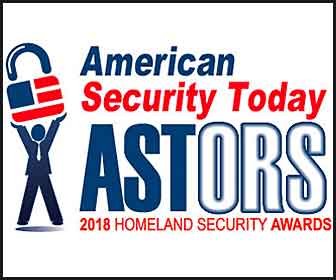 The Department of Homeland Security(DHS) Science and Technology Directorate (S&T)
The Department of Homeland Security(DHS) Science and Technology Directorate (S&T)- U.S. Customs and Border Protection
- The Department of Justice
- The Security Exchange Commission
- State and Municipal Law Enforcement Agencies
- The Royal Canadian Mounted Police
- Leaders in Private Security
American Security Today will be holding the 2018 ‘ASTORS’ Awards Presentation Luncheon to honor Nominees, Finalists and Winners on November 14, 2018 at ISC East 2018 in New York City.
Good luck to Lenel on becoming a Winner of the 2018 American Security Today’s Homeland Security Awards Program!
For more information about OnGuard version 7.5, and Lenel, a part of UTC Climate, Controls & Security, a unit of United Technologies Corp. please visit www.lenel.com.
The highlight of the 2018 AST Homeland Security Awards Season will be the 2018 ‘ASTORS’ Awards Presentation Luncheon to honor Nominees, Finalists and Winners on November 14, 2018 at ISC East 2018 at the Jacob Javits Exhibition Center.
Join us in Recognizing these Industry-Leading Firms for their Outstanding Product Development Achievements, Exciting New Technologies and Innovative Education Programs to address the growing Homeland Security Threats our Nation is facing.

Take advantage of this exclusive luncheon opportunity to Invite your Guests, Clients and Show Visitors to a lovely & affordable plated meal event in the heart of New York City, for a Fabulous Networking Opportunity!
ISC East is the Northeast’s largest security industry event and your ‘ASTORS’ Awards Luncheon registration includes complimentary attendee access to the show.
Already Exhibiting and/or Attending the 2018 ISC East Conference?
Join us to meet the 2018 ‘ASTORS’ Award Winning Company Executives & Government Agency Representatives.
Register today for the ‘ASTORS’ Homeland Security Awards Luncheon on November 14th, in New York City and give yourself & your clients a break from the show!
Gourmet luncheon choices available per person, or reserve a table – make an Impression on your Guests and Receive an Exclusive Discount Opportunity.



















